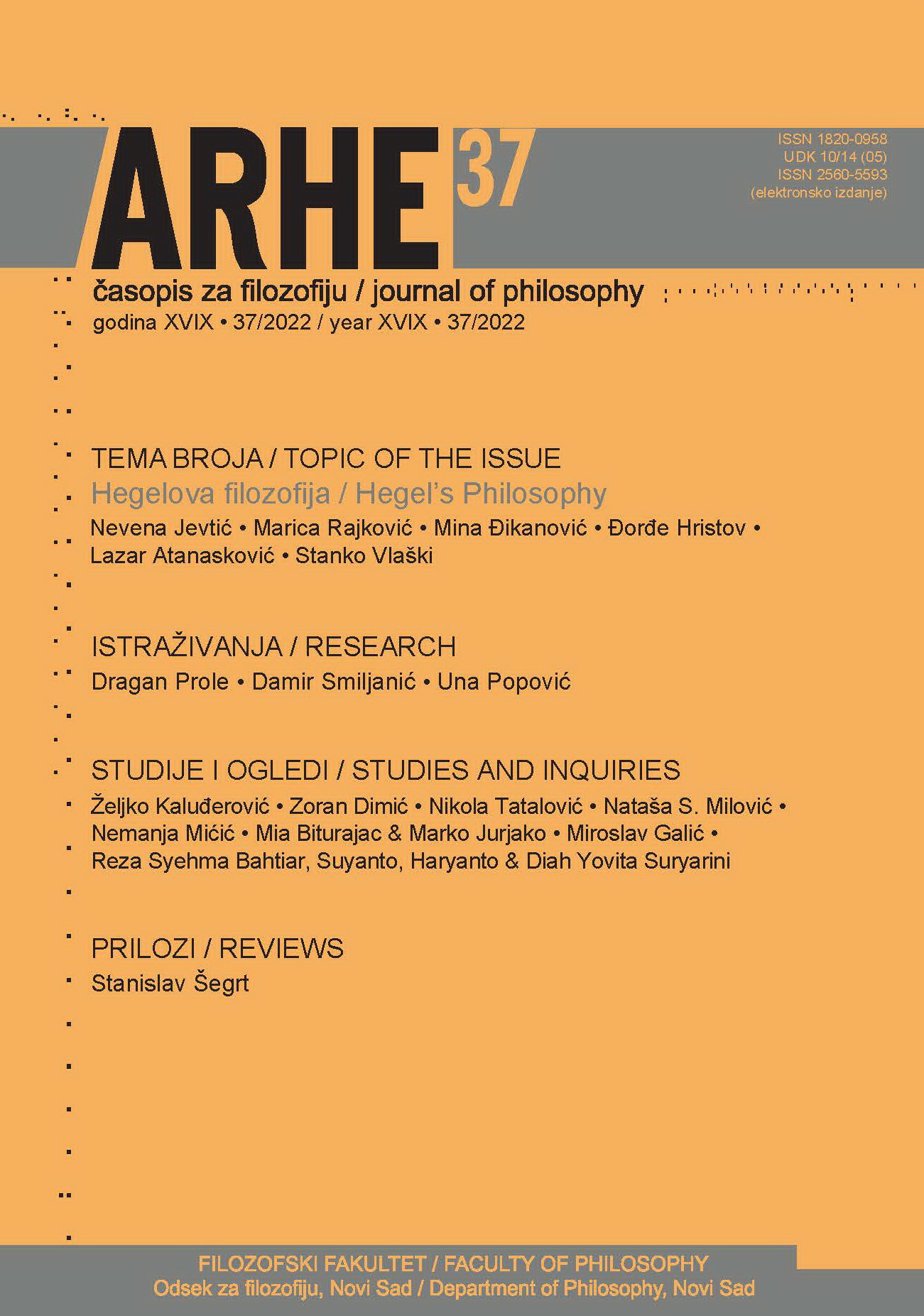Decline of Modern and Hegel’s Interpretation of Ancient Scepticism
Decline of Modern and Hegel’s Interpretation of Ancient Scepticism
Author(s): Nevena JevtićSubject(s): History of Philosophy, Metaphysics, Epistemology, Logic, German Idealism
Published by: Филозофски факултет, Универзитет у Новом Саду
Keywords: Hegel; Ancient Scepticism; Modern Scepticism; "Phenomenology of Spirit"; Self-completing Scepticism;
Summary/Abstract: For Hegel scepticism is one of the greatest forces in philosophical thought. He makes a sharp distinction between the scepticism of Ancient Greece, and the scepticism of modern thinkers from Descartes to (Hegel’s contemporary) Schulze. These two forms of scepticism appear to have a similar foundation, but according to Hegel, their nature is substantially different. Hegel will subsequently attempt to incorporate the fundamentals of ancient scepticism into the dialectics of consciousness, his primary subject in Phenomenology of Spirit, transforming its role in the process. Hegel reinterprets scepticism as a force of constant, self-affecting movement that is immanent to consciousness itself.
Journal: Arhe
- Issue Year: 2022
- Issue No: 37
- Page Range: 11-30
- Page Count: 20
- Language: English

